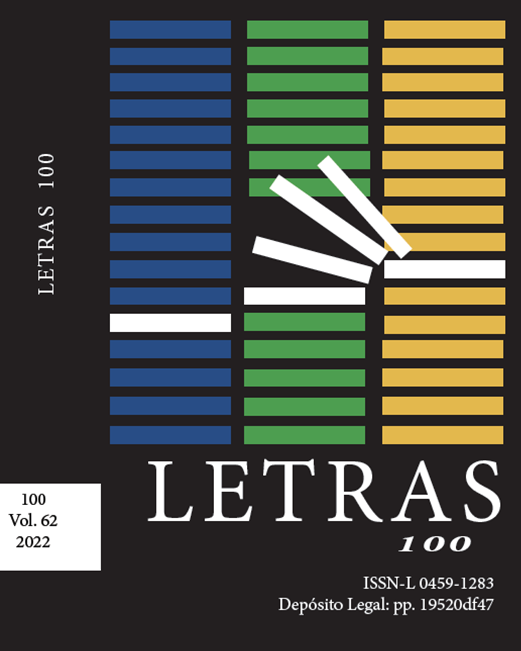Strategies of meaning negotiation on the subject of marital infidelity: religious versus psychological views
DOI:
https://doi.org/10.56219/letras.v62i100.1420Keywords:
appraisal, lexicon, negotiation strategies, marital infidelity, religion, psychologyAbstract
The aim of this article is to interpret how the strategies of meaning negotiation are like in terms of marital infidelity, from a religious and psychological point of view. For the orientation of this study, several questions were formulated. The theoretical foundation was based on Martin's Appraisal Theory (2001 and 2010), an approach framed within the area of discourse analysis. To gather the information, two interviews, one with an expert in the religious field and another one with an expert in the psychological field, were held in order to analyze the lexicon they use to negotiate meaning on the topic in question. The results revealed a series of strategies for dealing with the topic of adultery. Finally, among the conclusions, it was observed that adultery is negatively valued and that the sexual behavior of individuals is regulated through the asymmetry of power existing in society, in terms of the construction of male and female identity.
Downloads
References
Catecismo de la Iglesia Católica (s/f). http://www.vatican.va/archive/catechism_sp/index_sp.html
Kaplan, N. (2004). Nuevos desarrollos en el estudio de la evaluación en el lenguaje: Teoría de la Valoración: UCV.
Martin, J. (2001). Beyond Exchange: Appraisal Systems in English. En: Hunston, S. y Thompson, G. (2001). Evaluation in text: University press.
Martin, J. (2010). Duelo: cómo nos alineamos. Discurso y sociedad 4. www.dissoc.org.
Navia, C. (2008). Infidelidad, pesadilla y pasión. Aguilar
Sagrada Biblia (1967). https://media.Idscdn.org
Velasco, J. (2007). La trama de la infidelidad. Revista Electrónica de Psicología Iztacal 3. https://www.iztacala.unam.mx/carreras/psicologia/psiclin/
Weiner, M. (2004) en: Green, R. (2004). Infieles. 180 signos reveladores de la infidelidad de la pareja. Amat.
White, P. (s/f). Un recorrido por la teoría de la valoración. http://grammatucs.com/appraisal/SpanishTranslation-AppraisalOutline.pdf.
Published
How to Cite
Issue
Section
License
Copyright (c) 2022 Letras

This work is licensed under a Creative Commons Attribution-NonCommercial-ShareAlike 4.0 International License.
Letras magazine retains the patrimonial rights (copyright) of the published works, which favors and allows their reuse under the license (CC BY - NC - SA 4.0), for which they can be copied, used, disseminated, transmitted and expose publicly, as long as the authorship and original source of its publication (magazine, publisher, URL and DOI of the work) is cited, they are not used for commercial or onerous purposes and the existence and specifications of this use license are mentioned.















